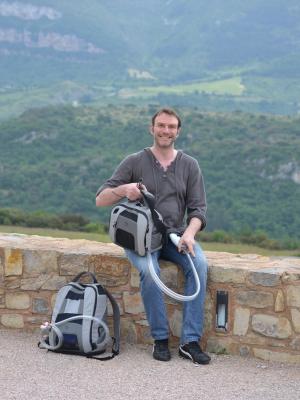
January 30, 2015 — SynCardia Systems Inc. has received U.S. Food and Drug Administration (FDA) approval to conduct a clinical study of the effectiveness of the SynCardia temporary Total Artificial Heart for permanent use, also called destination therapy.
On December 18, 2014, the FDA approved the SynCardia Investigational Device Exemption (IDE) application to conduct the study in 19 patients who do not qualify for a donor heart transplant.
Clinically stable patients implanted with the SynCardia Total Artificial Heart will receive the FDA-approved Freedom portable driver, which powers the SynCardia Heart and allows patients increased mobility. The SynCardia Total Artificial Heart is implanted in patients who are dying of end-stage biventricular heart failure in which the two ventricles of the native heart cannot pump enough blood for the patient to survive.
Similar to a donor heart transplant, the SynCardia Total Artificial Heart replaces the native heart’s two failed ventricles and four valves. It is the only approved device that eliminates the source of end-stage biventricular heart failure.
Because of the growing demand for donor hearts, and the flat supply, many patients live for months or years supported by the SynCardia Total Artificial Heart. The longest a person has lived with the SynCardia Heart was 1,374 days—nearly four years—before his donor heart was successfully transplanted.
For more information: www.syncardia.com


 January 05, 2026
January 05, 2026 









